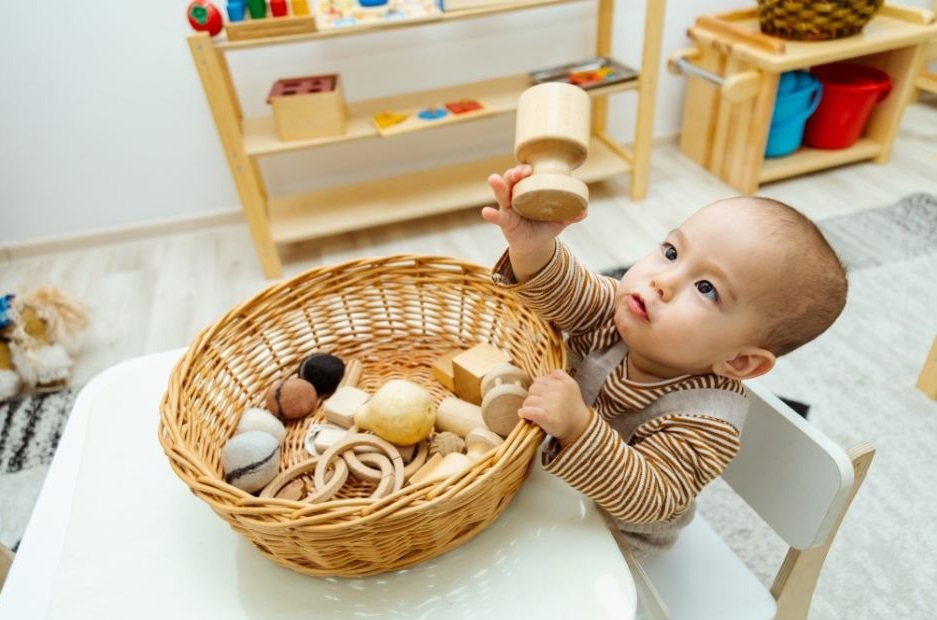Grace and Courtesy lessons are a hallmark of the Montessori Method. They help children learn how to take care of themselves, others, and their environment.
Children develop an awareness and an understanding of their own thoughts and emotions and how to express them, while also learning how to respect others’ feelings and personal space. They learn to take turns, to ask for help, and to politely decline invitations and offerings.
All of this might sound too good to be true, but we promise it isn’t!
Just as children learn to read and to count, they also learn basic social skills by absorbing them from us – their parents, caregivers, family members, and educators. We can help our children cultivate kindness, grace, and courtesy by modeling for them, being very intentional in our behaviors and our actions.
How can you model kindness, grace, and courtesy?
- Show children the same kindness and respect you want them to show to you and to others.
- Ask your child to help you when completing daily tasks like doing the laundry, cooking dinner, or bringing in the groceries. Young children love to be contributing members of their family communities.
- Offer them choices. Instead of demanding that your child do something, offer them choices instead so they feel a sense of autonomy.
- Say please and thank you regularly. Thank your partner and your child for the things they do each day.
- Use soft, calm voices when talking to your partner and your child. As difficult as it may sometimes be, try to keep your cool, even when you’re upset. This helps children learn how to do the same when they’re experiencing big emotions.
Other ways to foster kindness, grace, and courtesy
In some situations, children may need more direct exposure to experiences when certain graces and courtesies are expected.
- Try role playing with a partner or with the child themselves. For example, practice what to do and say when two children are playing and they both want the yellow truck. Then invite your child to join in; they’ll love role playing and will learn an important lesson, too!
- Set clear expectations. Explain how you would like a child to behave before entering a new environment – “At the library, we use a soft voice like this.”
- Explain the reasoning. Young children may not likely ask the why behind basic graces and courtesies, but explaining why certain behaviors are important can be satisfying.
- Use visual reminders. Simple visual cues like photos or picture cards can help your child remember what to do in different situations such as washing their hands, getting dressed, and setting the table.
- Practice, practice, practice. Learning manners and social skills takes time and practice. Be patient with your child, giving them time and space to cultivate kindness, grace, and courtesy. Provide opportunities for them to play with other children and experience new situations so that they can practice their new skills.
Discover practical, easy-to-implement strategies to gently navigate your child’s emotional outbursts, while maintaining your own sense of calm.
Enjoy the journey!
Remember, we’re all human. We all make mistakes. Know that you’re not aiming for perfection; you’re hoping to help equip the child with the tools and knowledge to navigate the world with grace.
If you focus on treating your child the way you’d like to be treated, you’ll naturally be cultivating kindness, grace, and courtesy through your modeling. Since young children are like little sponges, soaking up everything we say and do, they’ll follow your lead and will also start to demonstrate kindness and respect for themselves, others, and their environment.
Don’t be discouraged by little bumps along the way. Keep modeling these skills and providing opportunities for your child to practice them daily and they’ll flourish!






